Ondrej Markus
Entrepreneur in ed-tech, building the future of education as a founder and CEO at Playful.
I write about the future of education, designing learning games, and running a startup.
I'm a generalist, introvert, gamer, and optimizing to be useful.
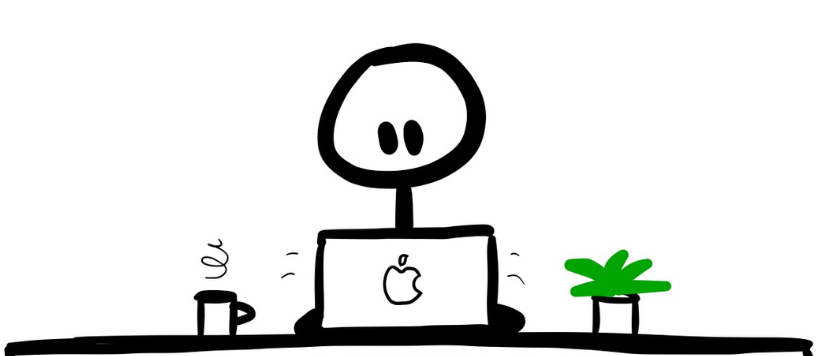
2022: Unanswered questions
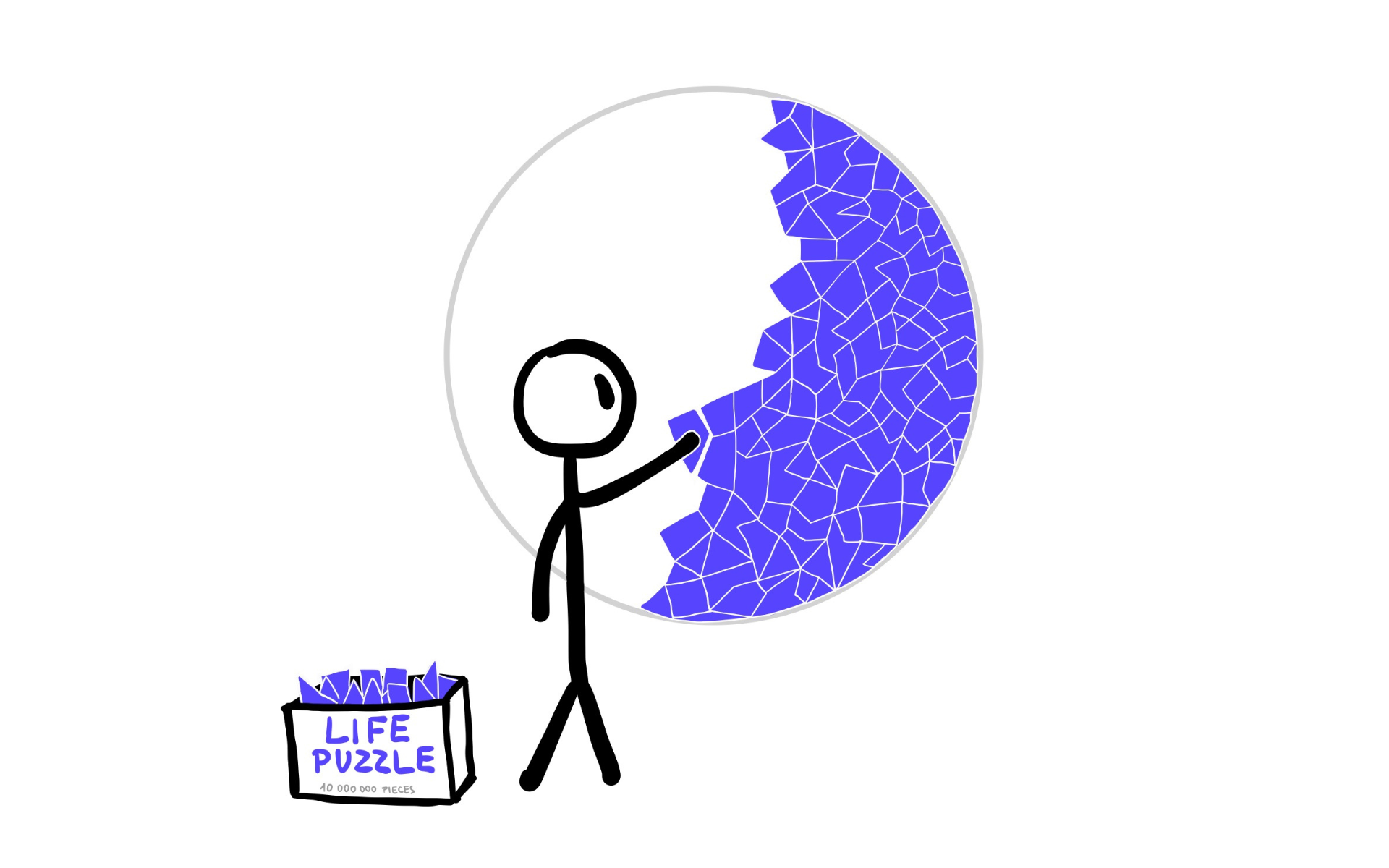
2022 was a turbulent year for me:
- I wrote full-time for 3 months, published 26 articles, but ended up deciding not to pursue writing full-time anymore
- I grinded for 3 months as a consulting innovation designer
- I decided to pivot my focus to game design
- I moved from Prague to Amsterdam
Last year feels like it had four distinct chapters. So let’s begin by going over each of them to briefly reflect on what happened.
Chapter 1: Full-time writing experiment
I landed into 2022 on my feet, running fast, with a commitment to publish 2 articles every week for 3 months.
The goal was to test whether I want to pursue writing online to make a living or not.
And I did it. I published 26 articles over 3 months without missing a deadline. Barely. It was fun but very challenging, so I was proud to have made it through with my pride intact.
Then I took 2 weeks to slow down and not do anything but reflect, asking myself: “What do I really want to do next in life?”
I came to a conclusion that surprised me: I want to make games.
And I definitely want to keep writing, but mostly as a tool for introspection, not as a profession.
Also, another hidden unanswered question of my life popped out: Would I enjoy living in a different country?
I decided to test both of these hypotheses by the end of the year.
Although, I was running out of savings and I knew moving countries will require me to have a solid cash buffer.
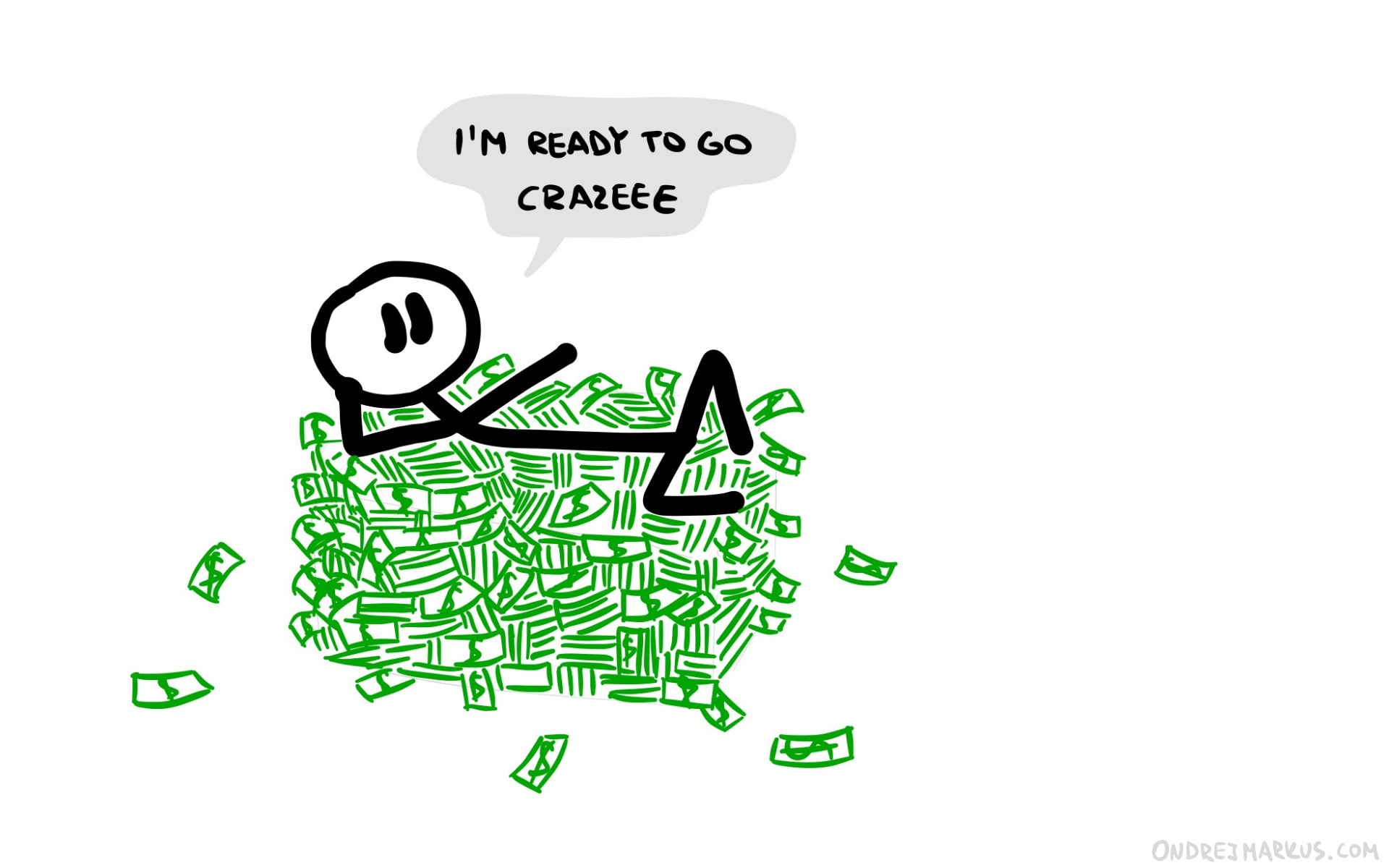
Cash reserves activated
(More about this chapter in my Q1 reflection.)
Chapter 2: Grind as a consulting product manager
Right then, I dusted off my design and product management skills and jumped back to work with Q Designers to lead a 3-month innovation project for a big energy provider in Prague.
My plan was to work 4 days a week on this project and leave the rest of my time to explore game making. That would enable me to save enough money while progressing in what I really wanted to do.
However, after 3 weeks on the project, I realized I’m not spending any time on games at all. The responsibility to lead the project was renting 100% of my brain. I was working on it 6 days a week.
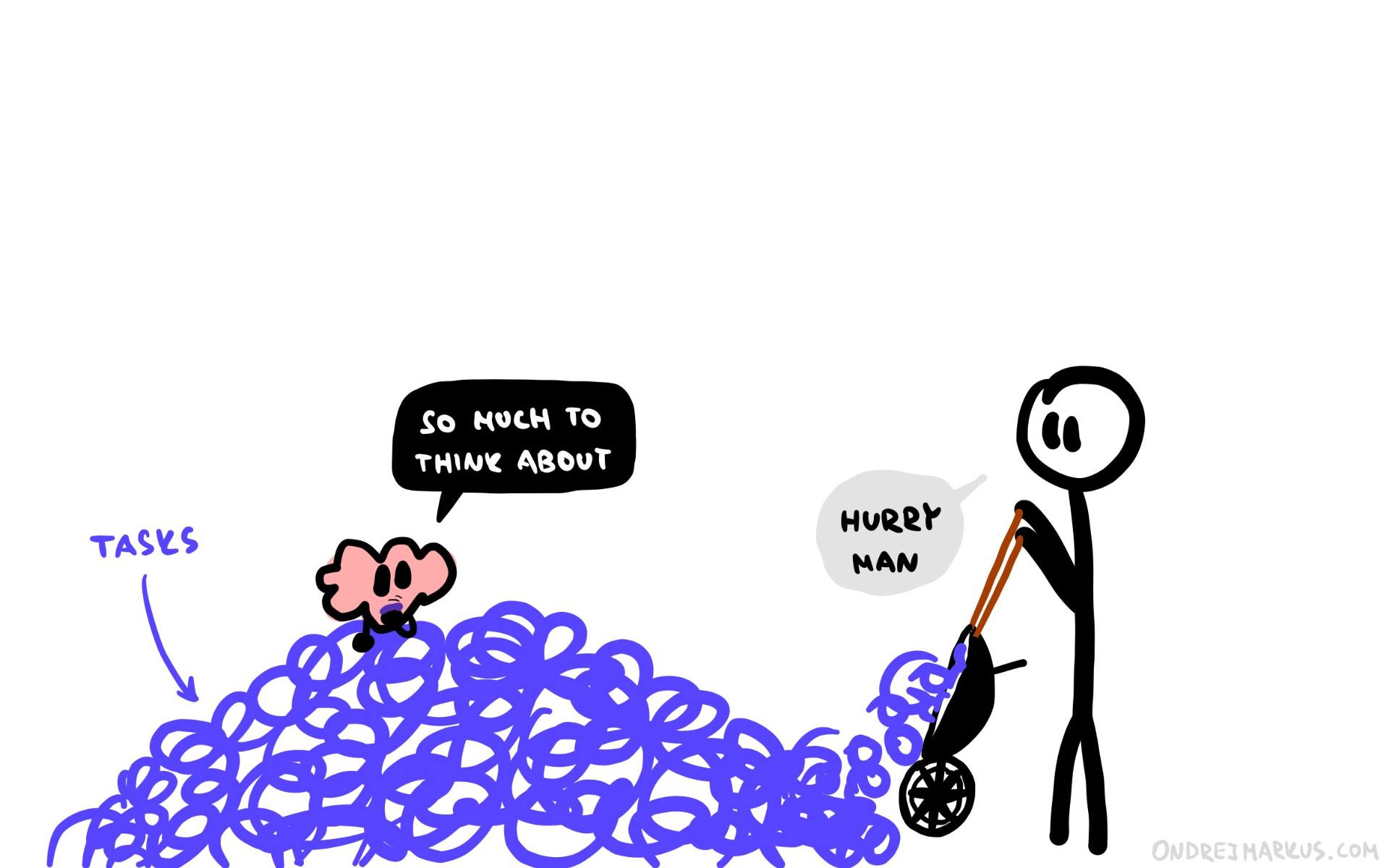
Brain fully rented
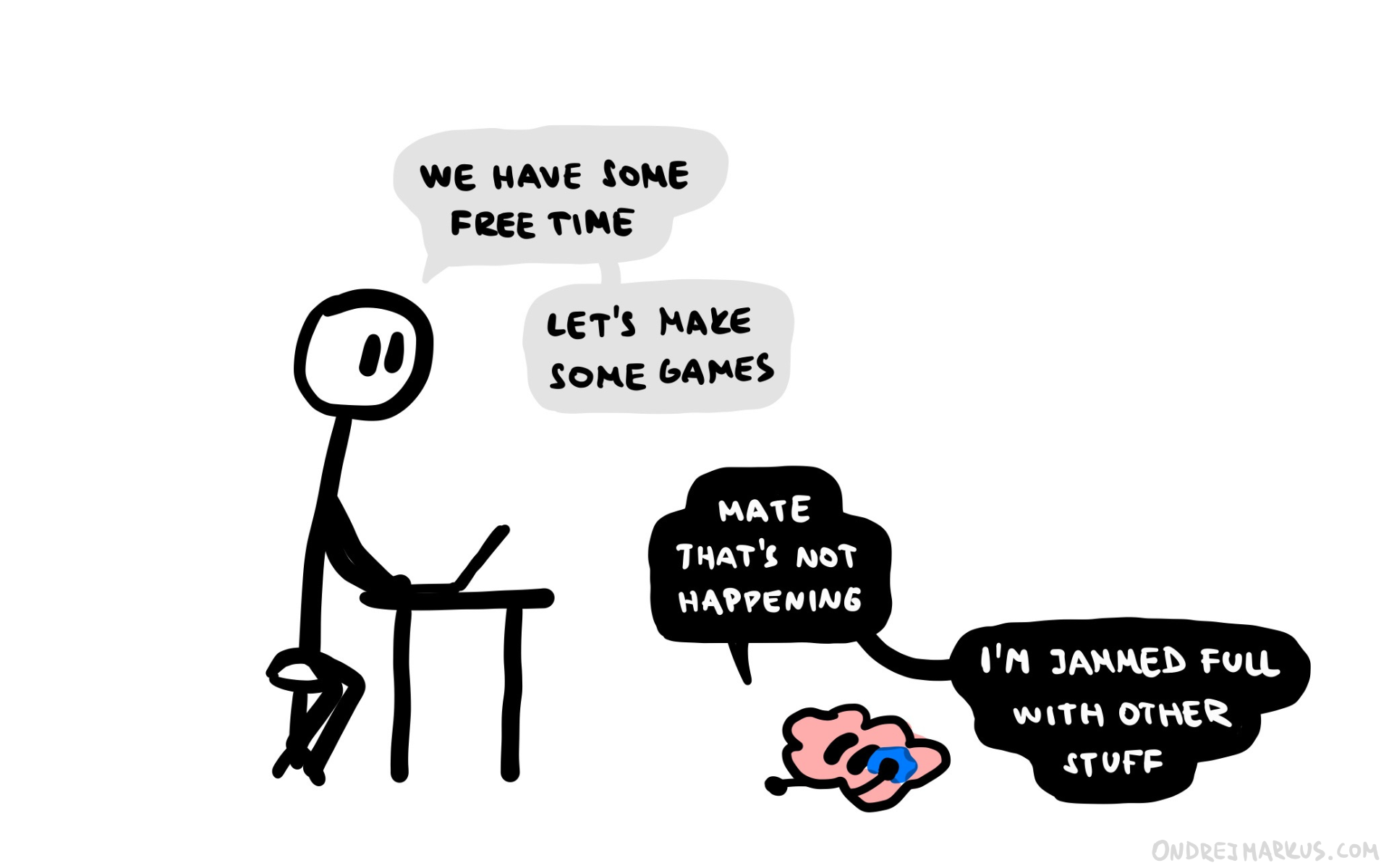
No space left
Also, I completely stopped writing, so I investigated in a reflection: Why don’t I do what I say I want?
I was worried I’m actually avoiding work on games because I’m afraid of failing at what I really want to succeed at the most.
At the same time, I objectively had a lot of project responsibilities on my mind. And even though I had some time to spare, whenever I sat down to work on games, nothing came out. I kept thinking about what needs to be done elsewhere. My attention was completely drained by the job.
I knew that if I want to do the best I can, I have to give it my full attention, so I did. I postponed game design experiments until July.
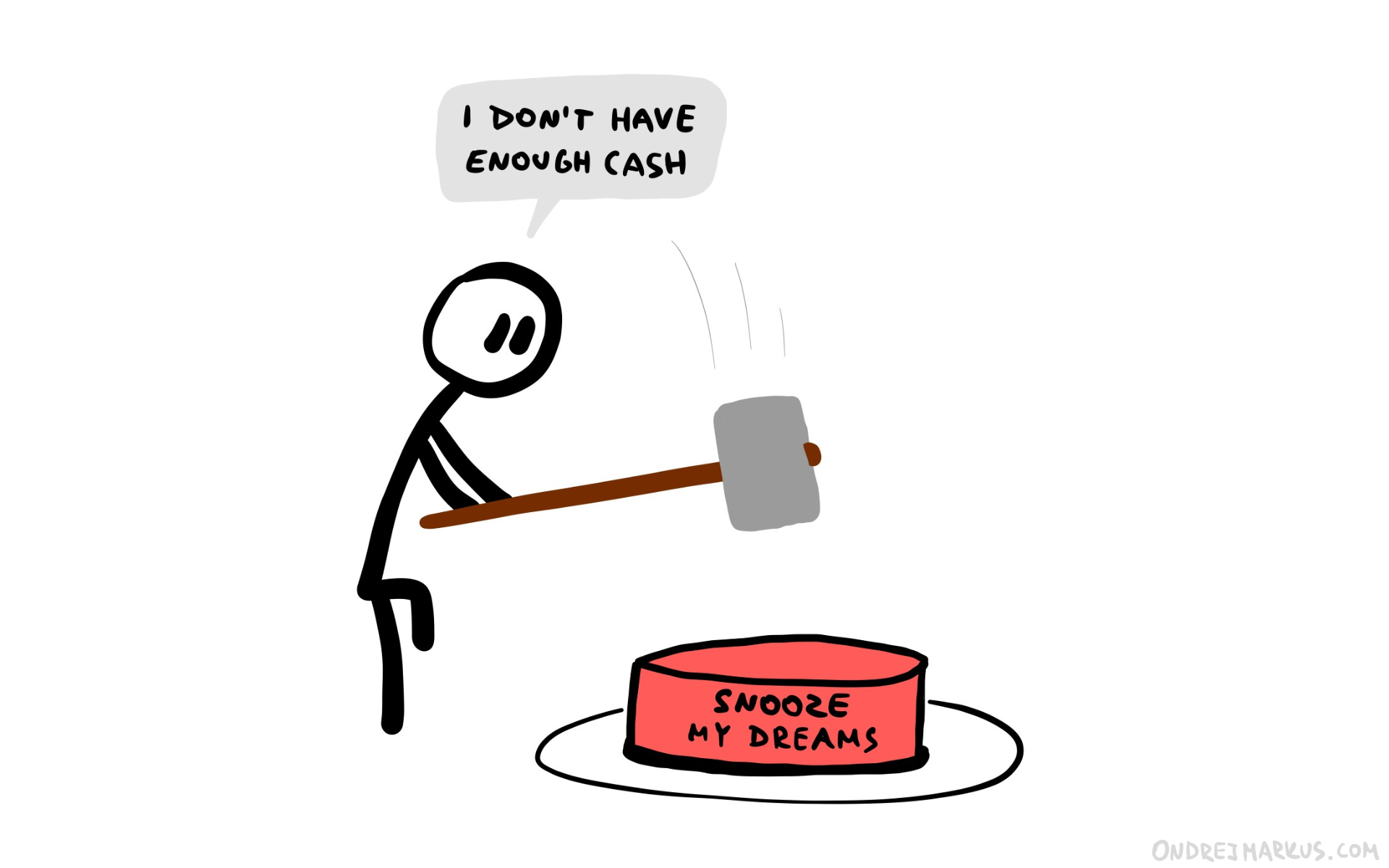
…
The product we worked on turned out well, so I’m glad I made this decision. Turns out that half-assing several things at once doesn’t work for me.
(More about this chapter in my Q2 reflection.)
Chapter 3: Let’s make games in Amsterdam
Once I handed over the final product, I took a week to just exist in peace. I needed to rest after 3 months of intense grind.
The good news was that I saved quite a lot of money (roughly 7.000 euro) because I had a solid salary and my living expenses are tiny (by design).
Another important decision was made: We talked about where we want to live with Lin, and she found a six-month course in Amsterdam she wanted to join. Amsterdam was one of our top cities to try living in and the course was starting on 16th September (in two and a half months), so we decided on the spot that we are moving to Amsterdam in ten weeks.
For the next two months, I experimented with making board games and video games, going to local game design meetups, and connecting with games people online – all this to figure out if and how I actually want to make a living working on games.
In the meantime, I felt like a telemarketer, selling most of the stuff I owned in our apartment in Prague, so we are ready to move to Amsterdam.
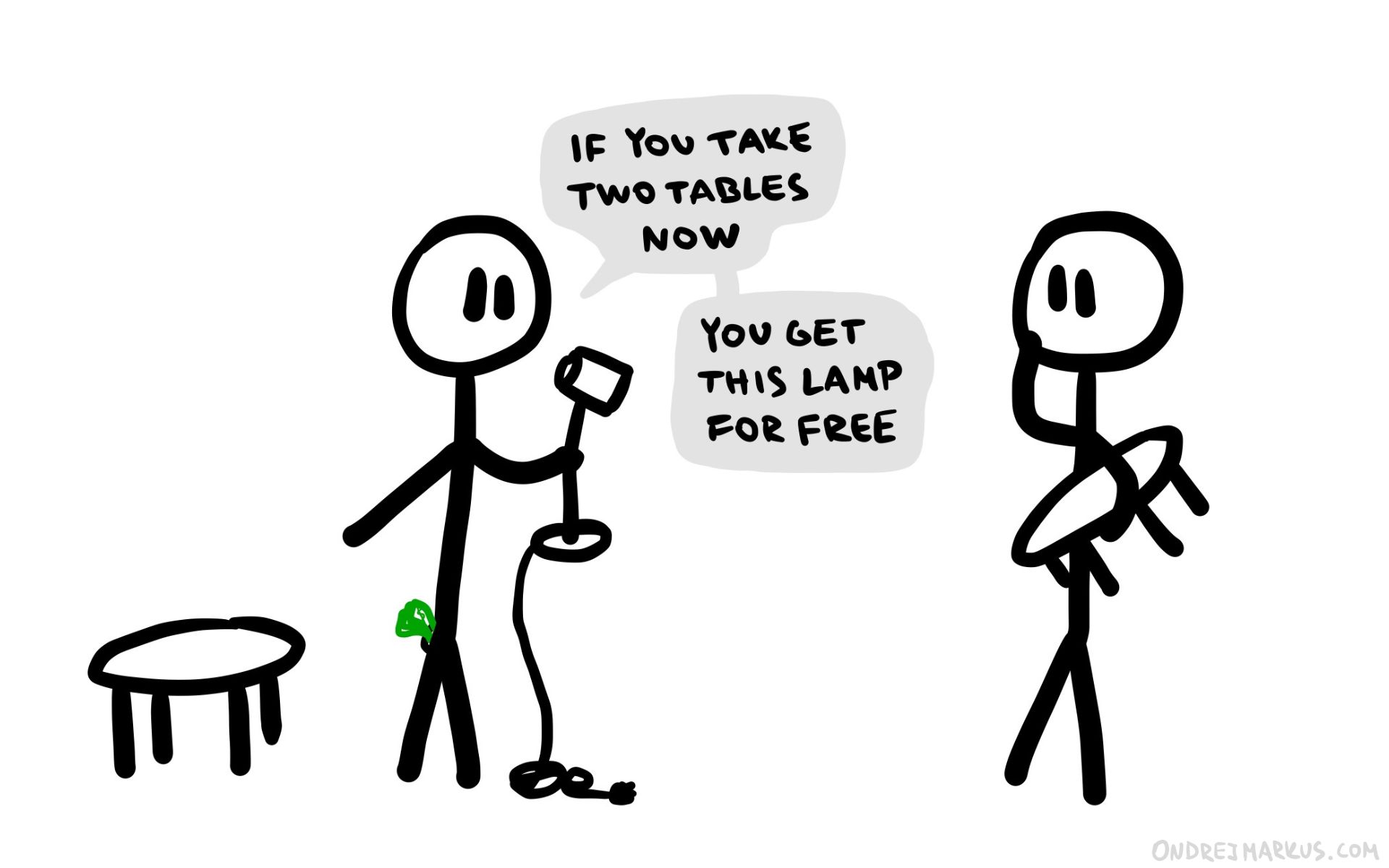
Selling most of my things, like a pro
The biggest moving challenge was to find a place to live in Amsterdam. Turns out getting an apartment there is next to impossible for a couple of not-employed-at-the-moment people. So we decided to book a room in the Social Hub for the first month or two. We arrived to Amsterdam on 15th September, ready to roll.
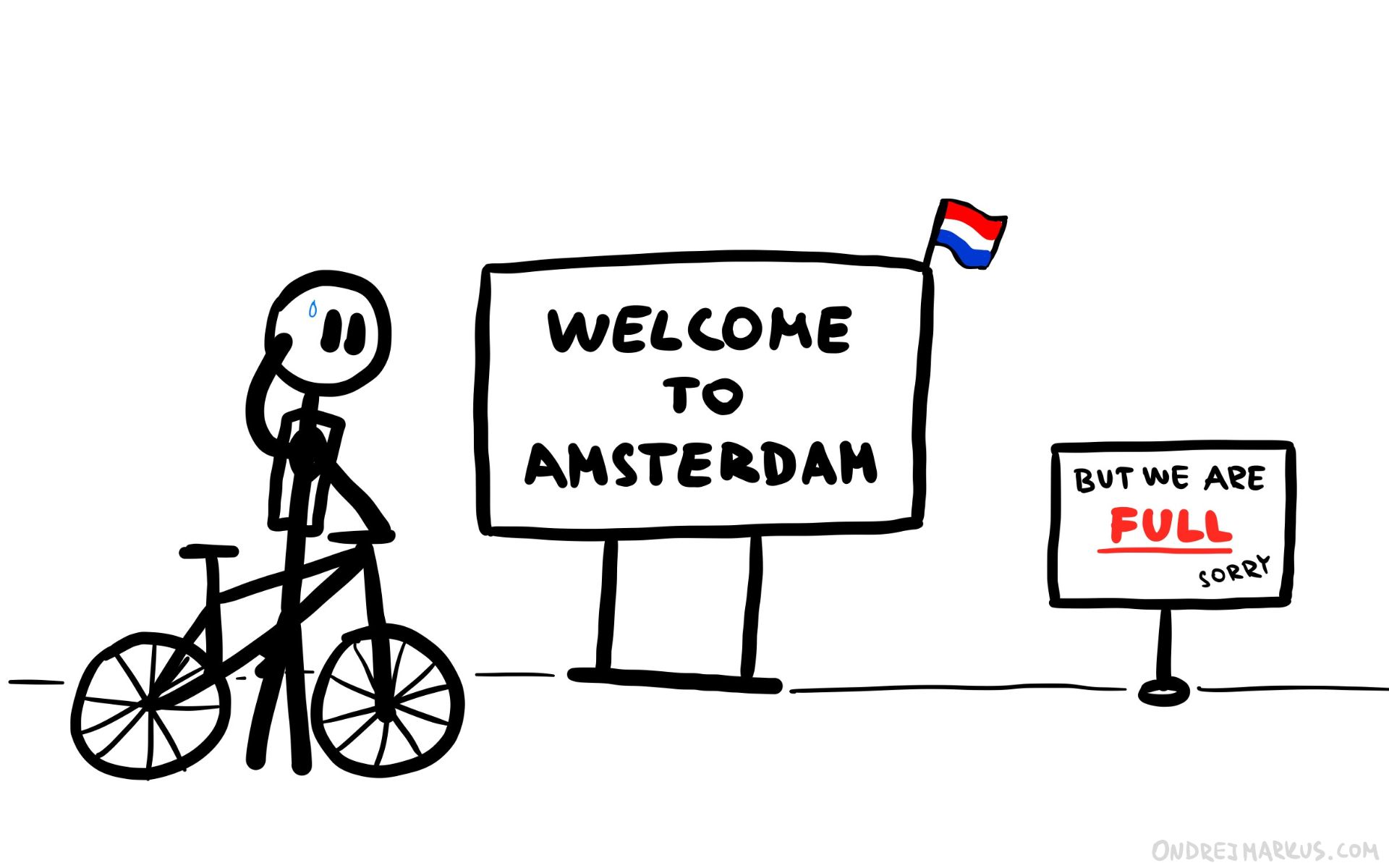
Moving to Amsterdam
I tried a bunch of stuff in my game design explorations, but looking back, I can see how distracted I was by splitting my attention between game design and preparing to move to a new country on ten week notice.

Time is not enough. You need the complete TEA package.
I didn’t create anything substantial beside a small card game prototype I play-tested a few times with different groups of people, and a couple more untested unfinished prototypes of other board games.
It felt like something was missing to make the game-making explorations feel meaningful, but I didn’t know what.
((More about this chapter in my Q3 reflection.))
Chapter 4: Finding purpose in making games
The first 3 weeks in Amsterdam felt like a vacation. Partially because the Social Hub is technically a hotel, and it looks like one. And partially because everything was new to me.
I immediately started exploring the city on a bike every day and I joined several Discord servers (mostly board game related) to meet new people, find gaming groups, and make local friends.
Another big question mark on my mind was: Should I find a job? Because the rent was double of what we paid in Prague, so my savings wouldn’t last forever.
The job search was a huge reflection point for me. Two forces were fighting in me over control: the Survivor and the Dreamer.
The Survivor yelled at me to get a safe job quickly to stabilize the monthly cash bleed. While the Dreamer whispered in my ear to take a chill pill and have all the time I need to find an opportunity I love, instead of jumping onto anything just for the feeling of safety only to be quickly followed by the horror feeling of “oh no I hate this job and my life and I can’t get out.”
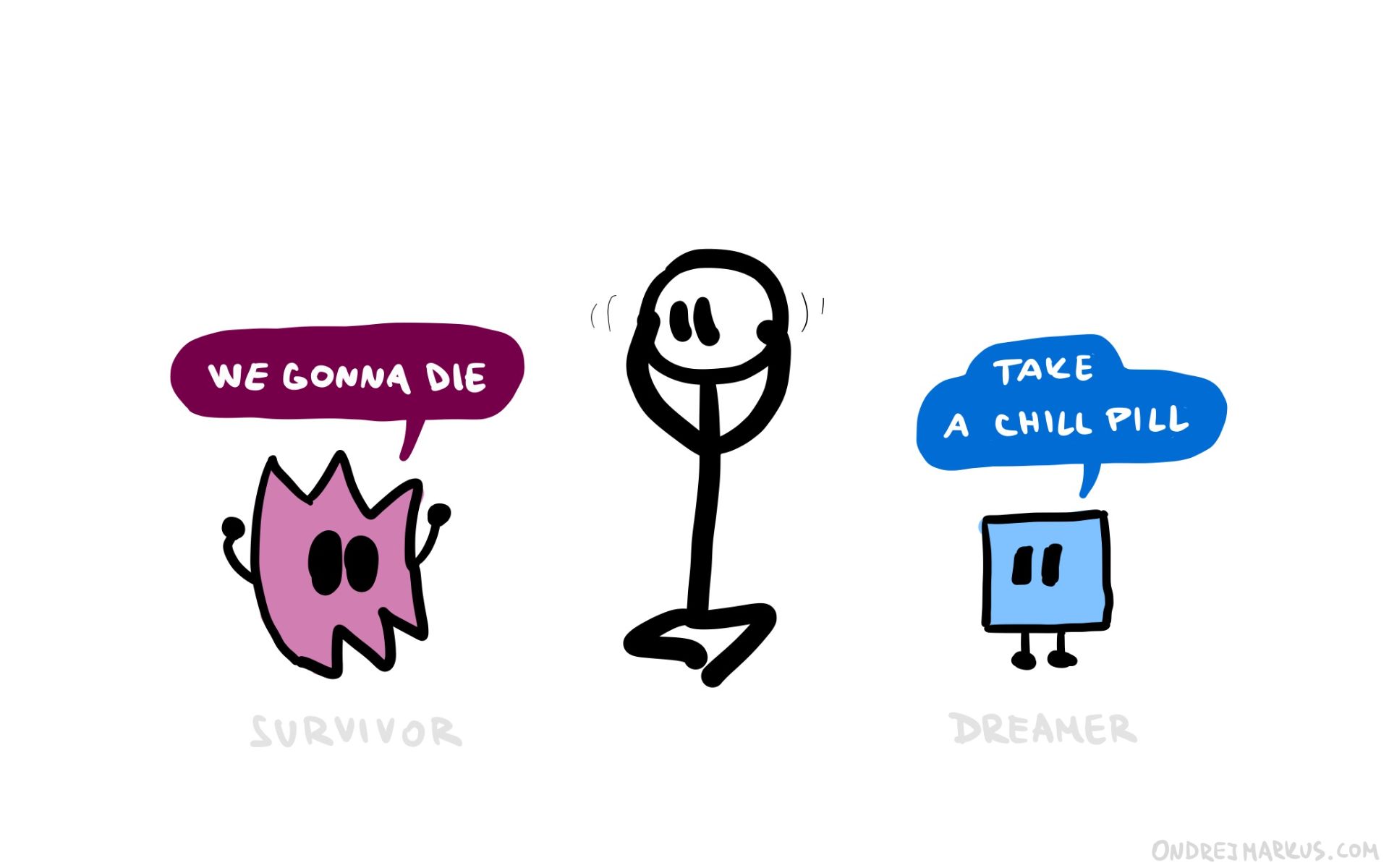
Survivor vs. Dreamer
Both of them had a point. But what is the right balance? I bounced back and forth between whether I should play it safe and pay the price by doing a boring job. Or if I should go only after opportunities I really see myself enjoying because they enable my natural curiosity instead of overriding it with something I don’t care about as much.
I landed closer to the Dreamer’s pitch: be bold (naive?) and do not rush this. Find something truly exciting you’d die for to have a chance to do.
Two things came around during October and November I would put into the die-for-to-do category.
The first one was Synthesis – an enrichment program for kids started by Joshua Dahn – a teacher who previously co-founded the Ad Astra school at SpaceX with Elon Musk.
I was (and still am) blown away by how they use games to create playful but intense learning experiences where kids become world-class problem solvers while having fun playing games together.
My instant reaction was: I want to work there OR I will build something like this on my own.
(Thank you, Michel, for mentioning Synthesis. That was huge for me!)
I immediately applied for an open position of a senior product manager but received a quick “no” as a reply because they were only hiring people in US timezones.
(I might also not have been experienced enough for this senior level position, but let’s say it was only definitely because of the time zone issue.)
Disappointed but deeply inspired, I suddenly realized what was the missing piece in my game design explorations for the last 6 months: I don’t just want to make any games. I want to make games to help people learn important skills in a way that’s more fun and effective than regular education.

The WHY
My WHAT got paired with a strong WHY. Now I only needed to figure out HOW exactly am I going to do that?
There are two ways to approach this:
- Find someone who already does this and join them
- Do it on my own
I decided to try number one first, and pivot to number two if I don’t find something by the end of 2022.
It was the second half of November now and that’s where the second of the two dream opportunities came into play. I found a product manager opening in Lingumi – a game-based tutoring language-learning platform for pre-school kids. I reached out and went through three rounds of interviews over four weeks. But, in the final round, they chose somebody else who had more experience with the kind of platform they’re running.
Now it was December 16th, disappointed again but still excited and inspired to try other ways, I decided to follow the “do it on my own path.”
I came back to Czech Republic for Christmas, recharged my batteries over the holidays, and now I’m ready to jump back into action with a freshly baked plan.
(Up to this point, I wrote this during the first week of January. But then I procrastinated finishing it. Now it’s 31st January and things are already moving. So let’s look at my plans for Q1 2023 as they’re already unfolding.)
Plans for Q1 2023
The big picture intention is this:
I will create a game-based education program for kids.
Let’s deconstruct it.
-
I need to learn game development because the education program will be build on video games. So I have to become a programmer, essentially. I already have some experience with coding, but nothing close to the skill I need to pull this off. That’s why I’m already studying game development every day for the last 2 weeks. I even made a video about it. Yes I make videos now. It’s so much fun to play with comics in a video format!
-
Create a playable game prototype is the next step and the primary tangible goal for these 3 months. It’s going to be a very specific kind of game, similar to what Synthesis is doing. Their games (like Constellations or Art for All) are specifically designed to be played in bigger groups (12+ players) divided into teams of 3 or 4 to simulate complex collaborative problem-solving. I tried looking for an already existing game I could use but didn’t find any. Closest to it are Minecraft and Roblox. (Let me know if you know about some, please!)
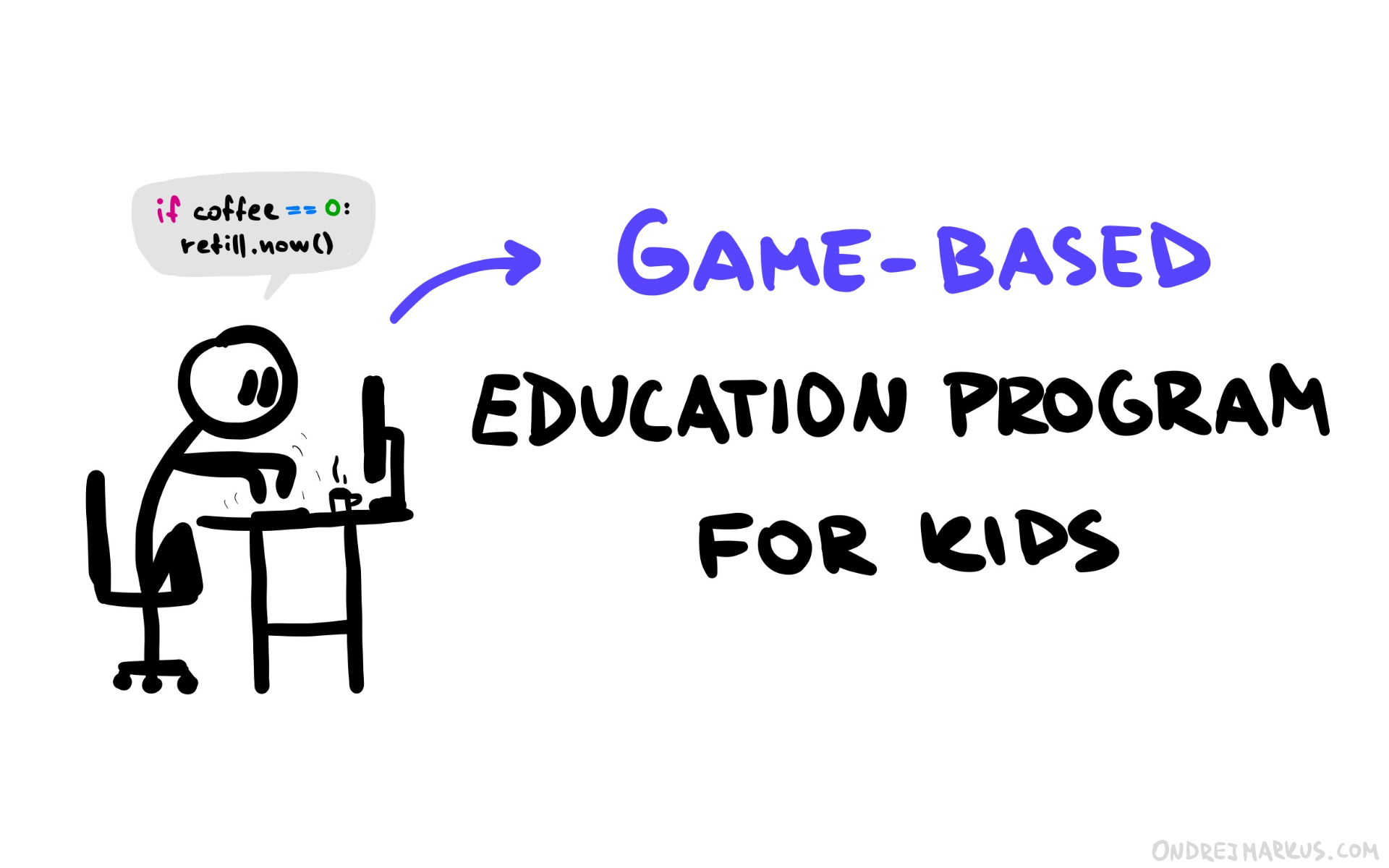
The WHY
- Organize the first cohort with a group of 12-16 kids (ages 9-11) to test the game-based program over multiple sessions. Once I have a prototype that’s somewhat playable, I will throw it into action. I’m also thinking about how to test this part separately before I finish the prototype, and I’m looking at Minecraft as a promising tool for organizing similar learning sessions. I will probably do it because programming games seems to be harder than I thought. (Of course it is!)
In the meantime, I’m not completely giving up on the option of joining a project where this is already happening, but I no longer want to wait and depend on it.
Searching and interviewing takes a lot of energy I’d prefer to spend on making this happen on my own.
The biggest reason to keep looking for an opportunity to join someone is that I would rather do this with someone than alone. It gets lonely when you work on your own. But I will do this alone if nobody turns up, because I would rather work on this kind of project alone than on anything else with others.
Follow my work
If you care about design, games, and education you can follow me here:
- I’m going to be sharing all my work in my newsletter.
- I’ve also just started a Youtube channel.
- And I have Twitter where I post smaller updates every day or two.
And that’s it for last year’s reflection.
Now I’m full-time on game development at my workplace for the next 3 months.
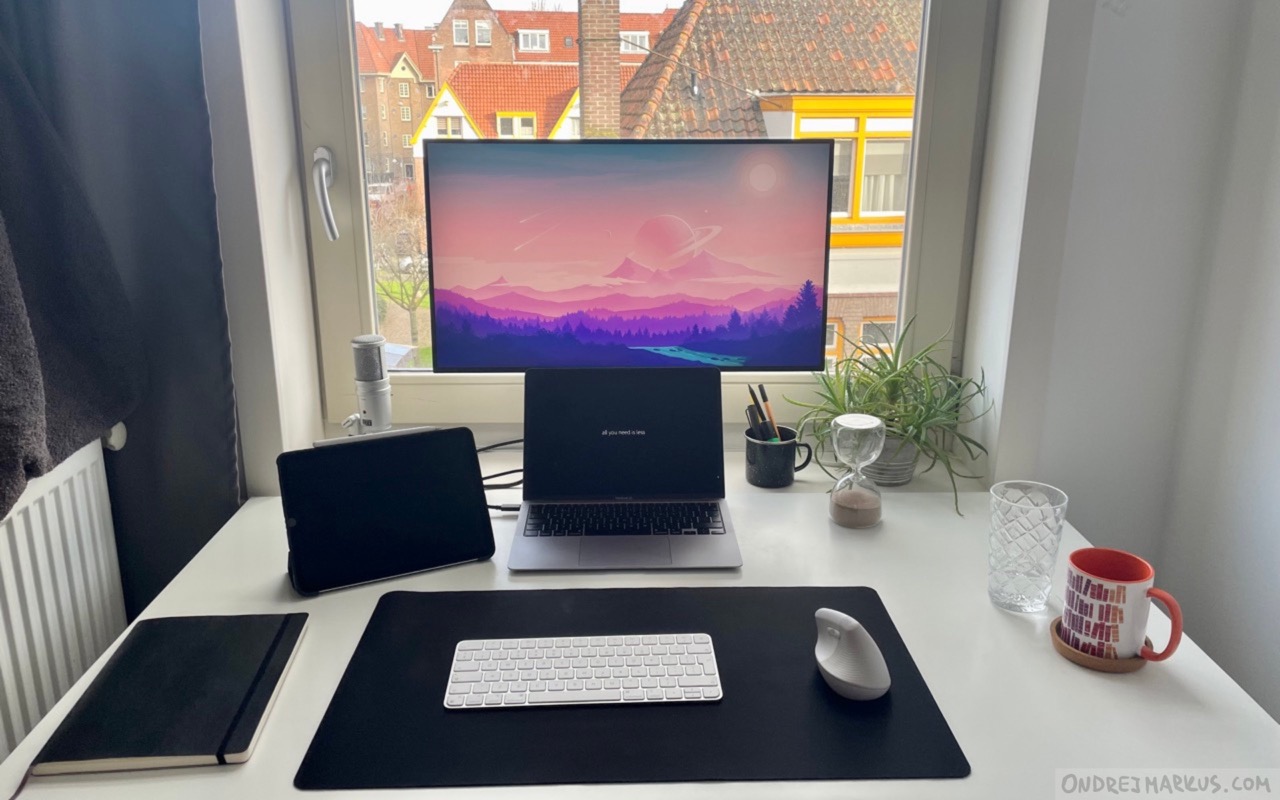
Where the magic happens, sometimes
I hope you enjoyed your 2022. And let me know what are YOUR plans for 2023. I’m curious.
Cheers
O.